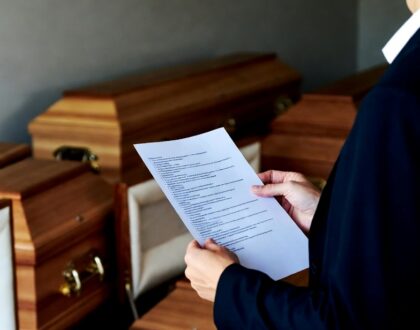Cheap Coffins According to Answerthepublic.com

According to Answerthepublic.com these a most common questions asked about Coffin Suppliers.
How much is the cheapest coffin?
What is a cheap coffin?
A cheap coffin is typically a simple, budget-friendly casket made from basic materials like pine, particle board, or cardboard, designed to keep costs low while meeting basic burial or cremation needs. Prices for these coffins usually range from £250 to £1,000, depending on the material, design, and supplier. For example, pine coffins or biodegradable options like cardboard are often the most affordable, starting as low as £200-£300 online or through discount retailers like Comparethecoffin.com or eBay. These coffins prioritize functionality over aesthetics, with minimal embellishments or linings.
If you’re looking for specifics, such as local suppliers or exact models, could you share your location or preferences (e.g., burial vs. cremation)? I can also check for real-time pricing or options on the web or X if needed.
Do next of kin have to pay for a funeral?
In the United Kingdom, next of kin are not legally required to pay for a funeral unless they have personally signed a contract with a funeral director or explicitly agreed to cover the costs. Here’s a clear breakdown based on UK regulations and practices:
- Primary Responsibility: Funeral expenses are typically paid from the deceased’s estate (e.g., their savings, property, or other assets) before any inheritance is distributed. If the estate has sufficient funds, the executor or administrator of the estate arranges payment.
- No Estate or Insufficient Funds: If the deceased’s estate has no money or not enough to cover funeral costs, the next of kin are not automatically liable. However, if a family member or next of kin arranges the funeral and signs an agreement with the funeral director, they may become personally responsible for the costs.
- Public Health Funerals: If no one is able or willing to pay, and the estate is insolvent, the local council or health authority has a legal duty under the Public Health (Control of Disease) Act 1984 to arrange a basic funeral, often called a “public health funeral” or “pauper’s funeral.” This typically includes a simple coffin and cremation or burial, but it’s minimal and may not involve family preferences.
- Other Options: Some families may access financial help to avoid personal costs:
- Funeral Expenses Payment: If the next of kin or a close relative is receiving certain benefits (e.g., Universal Credit, Pension Credit, or Housing Benefit), they can apply for a Funeral Expenses Payment from the Department for Work and Pensions (DWP). This covers basic costs like a coffin, burial/cremation fees, and some transport, though it may not cover the full funeral.
- Prepaid Funeral Plans: If the deceased had a prepaid funeral plan, this can cover costs without burdening the family.
- Charitable or Community Support: Some charities or local organizations may assist with costs in cases of financial hardship.
- Practical Considerations: Cultural or social expectations might pressure next of kin to contribute, but legally, they can refuse if they haven’t agreed to pay. Funeral directors may ask for upfront deposits or guarantees, so it’s important to clarify financial responsibility before signing anything.
For context, the average UK funeral costs around £4,000–£5,000 (as of recent data), but cheaper options, like direct cremations (£1,000–£2,000) or basic coffins (starting at £100–£300), can reduce costs significantly.
If you’re dealing with a specific situation, could you share more details (e.g., location in the UK or whether the deceased had an estate)? I can look into local council policies, specific funeral providers, or real-time assistance options if needed.
What is the least expensive way to have a funeral?
The least expensive way to have a funeral in the UK is typically through a direct cremation or, in cases where no one can pay, a public health funeral arranged by the local council. Below is a detailed breakdown of the most cost-effective options, based on current UK practices and pricing (as of 2025):
1. Direct Cremation (Cheapest Option for Families)
- What it is: A no-frills cremation without a funeral service, viewing, or ceremony. The body is collected, cremated at a time chosen by the crematorium, and the ashes are returned to the family or scattered (depending on the provider).
- Cost: £1,000–£2,000, often significantly less than a traditional funeral (£4,000–£5,000). Some providers offer packages as low as £800–£1,200.
- Why it’s cheap:
- No service, hearse, limousines, or embalming.
- Uses a basic coffin (e.g., cardboard or simple pine, costing £100–£300).
- Cremation occurs at an off-peak time.
- Providers: Companies like Pure Cremation, Simplicity Cremations, or Co-op Funeralcare offer direct cremation packages. Online comparison sites like Beyond or Funeral Guide can help find the lowest local rates.
- Considerations: Families can hold a separate memorial later (e.g., at home or a community venue) to keep costs down. Check if the provider includes ashes return or scattering, as some charge extra.
- Example: Pure Cremation advertises direct cremations starting at around £1,199 (based on recent web data), including a basic coffin and transport.
2. Public Health Funeral (Free, if Eligible)
- What it is: A basic funeral arranged and paid for by the local council when the deceased’s estate has no funds and no one is able or willing to pay. Also called a “pauper’s funeral,” it’s mandated under the Public Health (Control of Disease) Act 1984.
- Cost: Free to the family, funded by the council.
- What’s included:
- A simple coffin (often the cheapest available, e.g., cardboard or chipboard).
- Basic cremation or burial (council’s choice, often cremation).
- No ceremony or family involvement in planning.
- Eligibility: Typically applies if:
- The deceased has no estate or insufficient funds.
- No next of kin or friends are willing/able to arrange the funeral.
- The body is unclaimed or the family requests council assistance.
- How to access: Contact the local council or hospital (if the deceased died there). They’ll verify the estate’s status and arrange the funeral.
- Considerations: These funerals are minimal, with no personalization. Families may not be informed of the date or have input on cremation vs. burial. Some councils allow families to collect ashes afterward.
3. Low-Cost Traditional Funeral
- What it is: A basic funeral with a short service, using the cheapest coffin and minimal extras (e.g., no limousines or flowers).
- Cost: £2,000–£3,500, depending on the provider and location.
- How to minimize costs:
- Choose a basic coffin (cardboard or pine, £100–£300).
- Opt for a cremation over burial (cremation fees are ~£700–£900 vs. burial plots at £1,000+).
- Use a local, independent funeral director (often cheaper than chains).
- Hold the service at a crematorium or graveside instead of a church.
- Skip extras like embalming, viewing, or printed orders of service.
- Providers: Look for budget options from Co-op Funeralcare, Dignity, or local independents. Comparison sites can help find deals.
- Example: Some funeral directors offer “simple funeral” packages starting at £1,999, including a basic coffin, hearse, and a short service.
4. Financial Assistance Options
To further reduce or eliminate costs, check these options:
- Funeral Expenses Payment: If you’re on benefits (e.g., Universal Credit, Pension Credit), the DWP may cover up to £1,000–£1,500 for cremation/burial, a basic coffin, and transport. Apply via Gov.uk; approval depends on your relationship to the deceased and financial status.
- Prepaid Funeral Plans: If the deceased had a plan, it may cover all costs. Check with providers like SunLife or Golden Charter.
- Charities or Crowdfunding: Organizations like Quaker Social Action or local hospices may offer grants. Crowdfunding on platforms like GoFundMe is also common.
- Estate Funds: If the deceased had savings or a bank account, funeral costs can be paid directly from the estate before other debts (banks often release funds for this).
Tips for Minimizing Costs
- Shop around: Compare quotes from multiple funeral directors. Use sites like Funeral Guide or Beyond for transparency.
- Choose a basic coffin: Cardboard or pine coffins are widely available for £100–£300 from suppliers like Eco Coffins or online retailers (e.g., Amazon).
- DIY memorial: Hold a memorial later at a free or low-cost venue (e.g., home, park) to avoid service fees.
- Check local council policies: Some councils offer discounted cremation fees for residents.
Average Costs for Context (2025 Estimates)
- Direct cremation: £1,000–£2,000
- Basic coffin: £100–£300
- Cremation fee: £700–£900
- Burial plot: £1,000–£3,000+
- Traditional funeral: £4,000–£5,000
If you provide your location in the UK or specific circumstances (e.g., whether the deceased had an estate or if you’re on benefits), I can search for local providers, council policies, or real-time pricing on X or the web. Would you like me to do that, or do you have other preferences (e.g., cremation vs. burial)?
Recommended Posts

What Is the Cheapest Coffin in the UK?
January 13, 2026

Frequently Asked Questions (FAQ) about Coffin Suppliers in the UK
November 4, 2025

